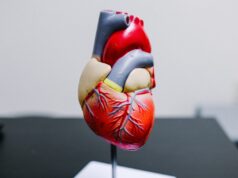 NeuroproteXeon has announced the publication of a second finding from a randomised, controlled phase II trial of inhaled xenon and oxygen combined with hypothermia for out-of-hospital cardiac arrest patients. The study, which appeared in the Journal of the American College of Cardiology (JACC) found, “among comatose survivors of out-of-hospital cardiac arrest, in comparison with hypothermia alone, inhaled xenon along with hypothermia suggests less severe myocardial injury as demonstrated by the significantly reduced level of troponin-T” (P=0.01).
NeuroproteXeon has announced the publication of a second finding from a randomised, controlled phase II trial of inhaled xenon and oxygen combined with hypothermia for out-of-hospital cardiac arrest patients. The study, which appeared in the Journal of the American College of Cardiology (JACC) found, “among comatose survivors of out-of-hospital cardiac arrest, in comparison with hypothermia alone, inhaled xenon along with hypothermia suggests less severe myocardial injury as demonstrated by the significantly reduced level of troponin-T” (P=0.01).
A total of 110 comatose patients who had experienced OHCA from a cardiac cause were randomised to receive either inhaled xenon (40% end-tidal concentration) combined with hypothermia (33°C) for 24 h (n = 55; xenon group) or hypothermia treatment alone (n = 55; control group). Troponin-T levels were measured at hospital admission, and at 24 h, 48 h, and 72 h post-cardiac arrest. All available cases were analysed for troponin-T release.
Earlier results from the same phase II trial published in the Journal of the American Medical Association (JAMA) showed significantly less white matter brain damage in patients receiving oxygen, xenon and hypothermia versus hypothermia alone (P=0.006), but no statistically significant difference in neurological outcomes or mortality at 6 months.
The randomised single-blind phase II clinical drug trial was conducted between August 2009 and March 2015 at two multipurpose intensive care units in Finland. 110 comatose patients (aged 24-76 years) who had experienced out-of-hospital cardiac arrest were randomised to receive either inhaled xenon combined with hypothermia (33°C) for 24 hours (n = 55 in the xenon group) or hypothermia treatment alone (n = 55 in the control group).
NeuroproteXeon is preparing to start its pivotal multi-centre Phase III trial in the second quarter of 2018. The company has an agreed special protocol assessment with the United States Food & Drug Administration (FDA) and a scientific advisory working party agreement (SAWP) with the European Medicines Agency (EMA). Both FDA and EMA have provided the company with an orphan designation on this application as well as related market exclusivity (seven and twelve years, respectively).
The company intends to commercialise the use of xenon for ongoing acute neurological injury, including its administration to successfully resuscitated patients after out-of-hospital cardiac arrest.









